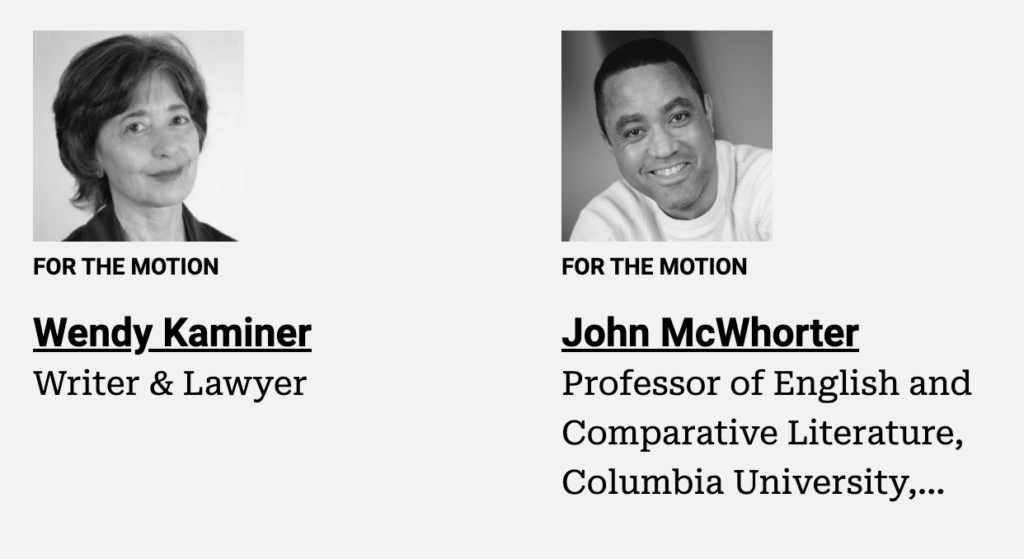Another free speech warrior comes out against campus protests

John McWhorter has taken some time away from his busy schedule of decrying the Threats to Free Speech on Campus to argue that free speech on his particular campus is bad because it deprives him of the use of a very common and important pedagogical technique:
Last Thursday, in the music humanities class I teach at Columbia University, two students were giving an in-class presentation on the composer John Cage. His most famous piece is “4’33”,” which directs us to listen in silence to surrounding noise for exactly that amount of time.
I had to tell the students we could not listen to that piece that afternoon because the surrounding noise would have been not birds or people walking by in the hallway but infuriated chanting from protesters outside the building.
The lines of communication between the McWhorter who is constantly going on about how SAFE SPACES are ruining campuses and the McWhorter who thinks students should not be exposed to speech he disagrees with appear to have been cut off. Also, I am no music theorist but wanting a particular curated listening experience when playing “4’33” would appear to me to contradict the whole point of the piece.
He also explains that the protests are peaceful because there are drums:
The other night I watched a dad coming from the protest with his little girl, giving a good hard few final snaps on the drum he was carrying, nodding at her in crisp salute, percussing his perspective into her little mind. This is not peaceful.
Um what?
He also wants to explain that the anti-apartheid protests he once protested in were completely different:
When I was at Rutgers in the mid-1980s, the protests were against investment in South Africa’s apartheid regime. There were similarities with the Columbia protests now: A large group of students established an encampment site right in front of the Rutgers student center on College Avenue, where dozens slept every night for several weeks. Among the largely white crowd, participation was a badge of civic commitment. There was chanting, along with the street theater inevitable, and perhaps even necessary, to effective protest; one guy even lay down in the middle of College Avenue to block traffic, taking a page from the Vietnam protests.
I don’t recall South Africans on campus feeling personally targeted, but the bigger difference was that though the protesters sought to make their point at high volume, over a long period and sometimes even rudely, they did not seek to all but shut down campus life.
It was not the protestors who made the choice to make classes remote at Columbia, and I have seen no evidence that this was something sought by the protestors. The decision was made by administrators using definitions of “student safety” that McWhorter has objected to on a million columns and podcasts. But acknowledging that would mean there was no material difference between the protestors at all, which would make clear that McWhorter’s commitment to free speech is highly dependent on whether he agrees with the content of the speech. Same as it ever was.


